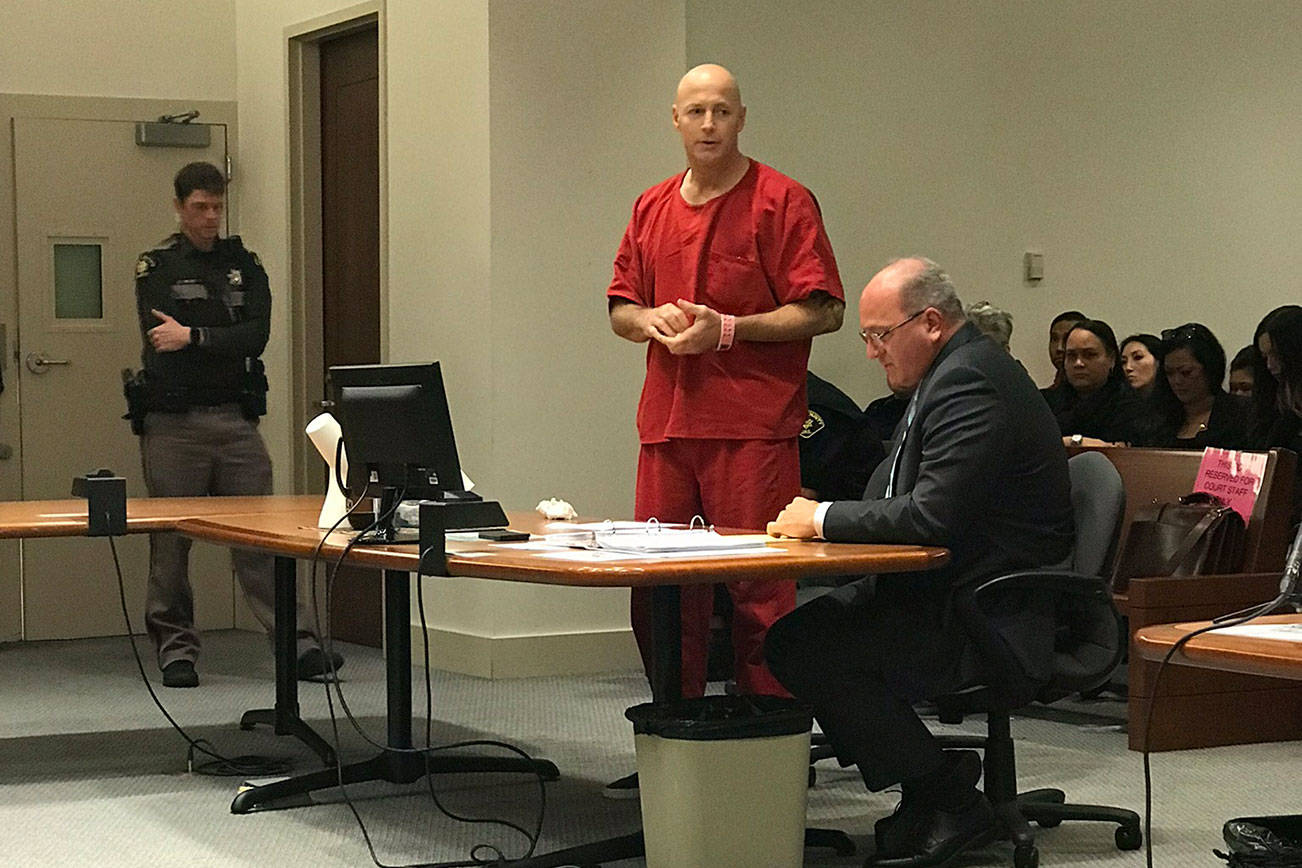The King County Sheriff’s Office has frequently mishandled investigations into complaints from citizens regarding use-of-force incidents, a new report finds.
According to the report—which was produced by a group of experts in police practices and commissioned by the sheriff’s official watchdog, the Office of Law Enforcement Oversight (OLEO)—sheriff’s office personnel frequently failed to follow department policy and procedure when investigating citizen complaints regarding deputies’ use of force.
The report was rolled out Aug. 28 at a King County Council Law and Justice Committee meeting.
“In many instances the sheriff’s office has solid policy,” said Kathryn Olson, one of the report’s authors and a principal researcher at Change Integration Consulting. “The question was whether there was consistent follow-through with regards to policies and procedures.”
The report comes on the heels of another analysis commissioned by OLEO that was released back in July and found that many citizen complaints filed against deputies weren’t investigated at all.
Specifically, the most recent report found that sheriff’s deputies are underreporting their own use of force. Of the 82 investigations into citizen complaints that were closed by the department in 2015 and 2016, in only 25 of them did the involved deputies report a use of force, despite department policy requiring that they do so.
A use-of-force report filed by the involved deputy is required when the officer hits or kicks a subject and applies pepper spray, tear gas, or a taser.
The report theorized that it is unlikely that deputies are intentionally underreporting incidents due to different expectations between department personnel and members of the public of what constitutes “force.” For example, sheriff’s office policy does not classify pointing a firearm at a suspect as a use-of-force.
Additionally, the report’s authors found that in-person interviews of citizen complainants, the involved deputies, and witnesses were infrequently conducted by either supervisors or investigators in the Sheriff’s Internal Investigations Unit (IIU).
For example, in 30 of the 82 cases over the course of 2015 and 2016, IIU did not conduct oral interviews with deputies involved in incidents, and merely requested that they fill out a basic questionnaire—despite a standing department policy that the deputies be interviewed. In three cases filed in 2015, the complainants weren’t interviewed at all by the relevant investigating supervisor. And IIU investigators only interviewed 33 of the 82 complaints, primarily relying on previous interviews conducted by supervisors of the involved deputies.
The report also alleges that a majority of investigated complaints were dismissed by the sheriff’s office and resulted in no consequences or accountability measures for the involved deputies. “Performance related training” was mandated for deputies in only two of the complaints closed over the 2015-2016 time period.
Additionally, department communications with complainants after their cases were closed were minimal and lacked sufficient information, according to the analysis. A press release from OLEO regarding the report claimed that “the Sheriff’s Office as an organization would benefit from a cultural shift to become more responsive to impacted members of the public.”
“Is it, on the whole, a culture that invites the public’s input [and] is responsive to the public in many different capacities? And we saw some ways that the sheriff’s office could improve on that front,” said Kathryn Olson of Change Integration Consulting.
The report also featured a slew of recommendations for the department, such as requiring deputies who use force to file detailed reports afterward and that IIU conduct in-person interviews in all use-of-force complaint investigations.
“With some change and interest in making changes, the sheriff’s office can increase accountability and increase transparency and increase a sense of legitimacy of their very own actions when it comes to enforcing the law,” Olson added at the meeting.
In response, the sheriff’s office released a statement citing recent changes to the department’s IIU made by Sheriff Mitzi Johanknecht, who is still in her first year in office. The changes include appointing a new commander for the unit and moving it outside of the sheriff’s office suite in the courthouse to prevent undue influence.
“I embrace independent oversight and am continuing to review best practices from across the country as we refine and improve our IIU policy and procedure,” Sheriff Johanknecht said in the statement.
The sheriff’s office also attempted to distance Johanknecht from the report’s conclusions. “Unfortunately, the information used as a basis for the report released by OLEO today is very dated (2015-2016). Therefore it does not provide the most accurate snapshot of our current IIU practices under this new administration,” according to the office’s statement.
In response to the press release from the sheriff’s office, OLEO Director Deborah Jacobs released a statement defending the report’s findings.
“Despite the 2015-2016 data used in the report, OLEO staff currently observes deficiencies in the processing of use of force complaints,” she said. For example, the sheriff’s office’s Internal Investigation Unit still largely relies upon written statements rather than conducting in-person interviews of deputies.
“We hope that the sheriff and her leadership team will see the merit in our review and recommendations, and take advantage of this expertise in assessing those systems and practices that most impact police and community relations. We welcome the opportunity to work through these recommendations with the sheriff’s office,” she added.
At the Aug. 28 meeting where the report was presented, several council members were disappointed that no personnel from the sheriff’s office were dispatched to the committee to discuss the report’s findings, despite invitations from OLEO and the committee chair, Councilmember Larry Gossett.
“We need someone from your office here,” Councilmember Reagan Dunn said to several deputies who were sitting in the audience for unrelated council business.
“We asked the sheriff to be here, but they declined to have anyone here,” Councilmember Gossett said at the meeting, later noting that the sheriff’s Chief of Staff Liz Rocca was present at the last hearing where an OLEO report was discussed. “I don’t understand why they wouldn’t always be here for this.”








